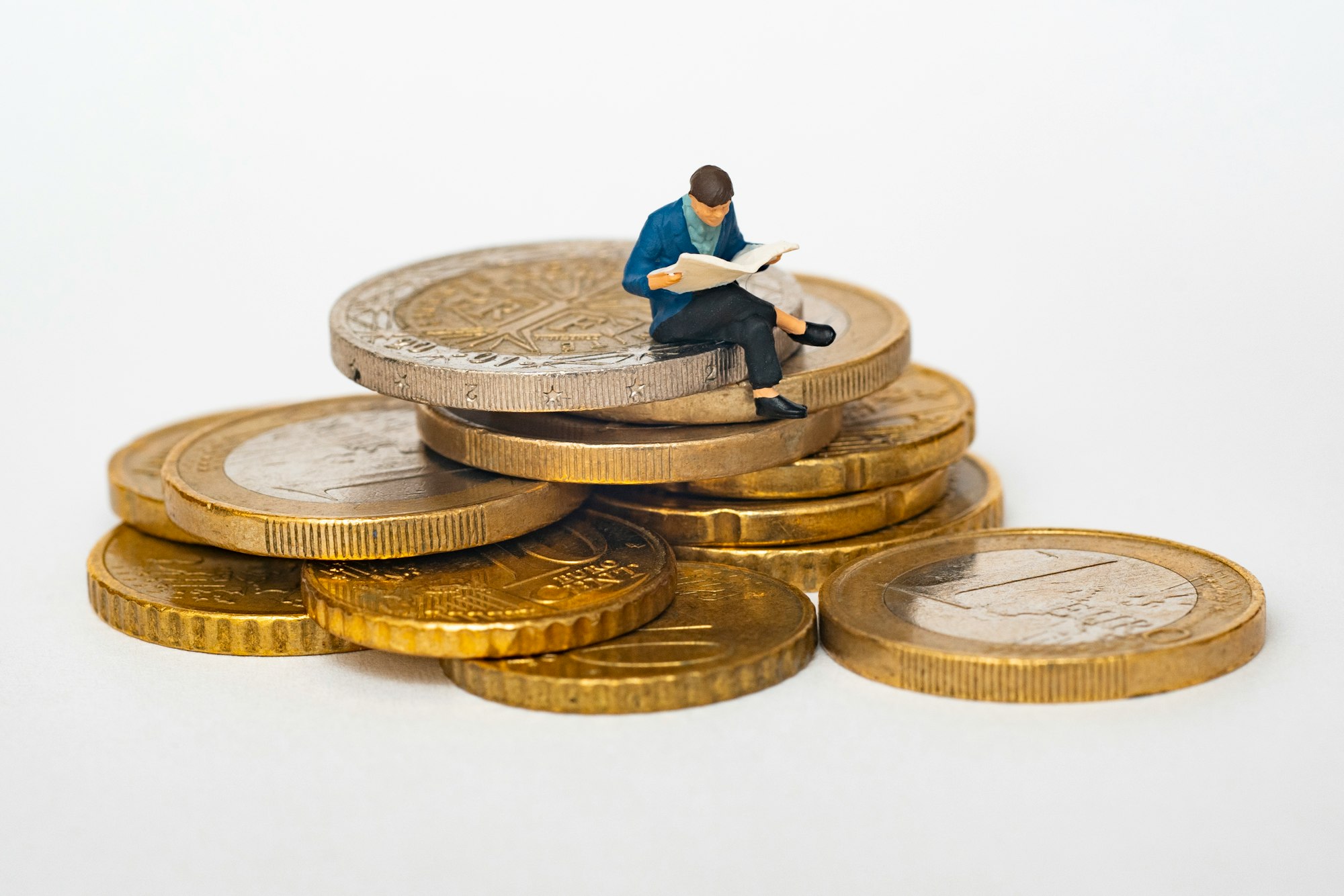My Money Lessons
If there is one lesson I wish everybody takes home from this post, it would be to build an emergency fund. Every morning, I see several calls for help on LinkedIn and Facebook.


I am 31 years old. I started making money at the age of 21. I got married at 27. It's been a decade. Looking back, there have been many good decisions and a few disasters. When I began earning, I remember the feeling very distinctly. I wasn't happy with what I was getting paid. I wanted more. I didn't know how much more. But I knew I wanted more. Almost every one of us has been through this emotion in our life. I failed to realize that it was more important to have a good plan to manage the money I was making. It seems like simple advice that almost anybody could give. Yet, most of us fail to realize its value. We believe we can somehow learn that skill after making more money. We end up making bad money choices. Here is an interesting stat: The NFL (National Football League) & NBA (National Basketball Association) are among the world's wealthiest sports bodies that pay insane salaries to their players. Yet, 78 percent of NFL players are either bankrupt or under financial stress within two years of retirement, and 60 percent of NBA players are broke within five years of leaving the sport.
Nobody teaches us about money. And yet, it decides our future in more ways than we can imagine. Money can't buy happiness, but neither can poverty. Good money decisions can enable us to plan for uncertainties in life. It can put us on a path to peace & happiness. Here are a few money lessons I have picked up throughout my life.
Caution: These lessons shouldn't be construed as financial advice. I am not professionally competent to provide financial advice.
Build an Emergency Fund starting today.
If there is one lesson I wish everybody takes home from this post, it would be to build an emergency fund. Every morning, I see several calls for help on LinkedIn and Facebook. Due to the pandemic, people have lost their job, met with unexpected medical complications that put their families on the brink of bankruptcy. While my heart goes out to them, I am constantly reminded to build an emergency fund strictly for these circumstances. You never know when disaster strikes. The idea is to prepare for such a situation financially. It doesn't solve all our problems. But it is one less thing to worry about.
Generally speaking, it would be wise to put aside a six-month household income as an emergency fund. If you are self-employed, make that a year (to account for the nature of the business, seasonality, and risk). This cannot be done overnight. But start today. Make a plan to get there as soon as possible. And most importantly, don't tap into it unnecessarily.
Insure your family. Insurance is not an investment.
Health and Life insurance are two critical vehicles to safeguard your family. While the former protects you & your loved ones during medical emergencies, the latter safeguard their future against unexpected loss of life. Automobile insurance helps you cover driving accidents. It is essential to understand that insurance is not an investment. It doesn't guarantee high returns. It helps us survive the financial hardships that life throws at us during emergencies.
Most companies offer health and life insurance to their employees. Maximizing life insurance (around 8-10X your annual income) is a good idea. If you are self-employed, find a good agent who has your best interests. When I started, many insurance agents advertised insurance as investment opportunities. Some even sold insurance to reach their business targets. Eventually, I found a family friend who helped me buy a policy that suited my needs. The same rules apply to health insurance too.
If it sounds too good to be true, it probably is.
Be highly suspicious of unbelievable deals. As the old adage goes, it probably is if it sounds too good to be true. There are no free lunches. The internet always throws out adverts on 'get rich overnight' schemes. With time, these advertisements have become more sophisticated. It is funny and embarrassing to share that I was a victim of such a scheme in the past. Thankfully, I had established a legal business and declared them as losses. The US federal government found them guilty of financial fraud in a class-action lawsuit and returned a small chunk of the lost money. I learned the lesson the hard way. I hope you don't.
Never put all your eggs in one basket.
This applies to both savings and earnings. My knowledge of stocks, realty markets, commodities, and futures is minimal. It would be difficult to fathom all situations/contingencies in these areas. Although the returns are high, the risk attached is also high. Hence, I diversify. I save on fixed, recurring, bonds, stocks, and real estate deposits. The ratio depends on my knowledge and my risk appetite.
Similarly, I am uncomfortable with the idea of depending on my day job as the only source of income. I am interested in developing alternative sources of revenue. I write, make YouTube videos because I enjoy doing them. But, I am aware they potentially generate additional income. It takes years to build these side hustles into full-fledged revenue generators.
Most people build several streams of saving opportunities but ignore building multiple earning opportunities. There is only so much you can save. Finding a side hustle helps. Finally, these side hustles mustn't impact your day job.
Never do anything in the middle of mass hysteria.
Case 1: The pandemic has thrown out several abnormal trends. The US unemployment numbers rose to an all-time high of 13% in May 2020 (worse than the 2008 crash). The mortgage delinquency rate rose to 8.22%. However, more people are buying homes now than ever. Home values have increased by 12% year on year. Even realty CEOs find these trends confusing. The Indian real estate story is far more mind-numbing. Investors are sitting on $82 billion worth of unsold inventory as of September 2020. Yet, the home prices aren't falling.
Case 2: The stock markets in the US have reached crazy valuations. Most indicators point to an impending bubble. Yet, more people are buying stocks at crazy prices. More people are investing in cryptocurrencies, hoping to ride the wave and make money. Meme stocks like GameStop are trading at incredible prices.
In my opinion, we are in the middle of mass hysteria. While buying a house or investing in the markets is okay if it is part of the plan, people trying to ride the wave expose themselves to the possibility of a hard crash. As most financial experts advise, I plan to sit out and watch this wave run its course. There is a good chance I will miss out on quite a few opportunities. But it is better to be safe than sorry.
Make small mistakes. But don't repeat them.
A person who never made a mistake never tried anything new. It is essential to learn about better opportunities for making money. It could be stocks, real estate, or bonds. I have made several mistakes in the process of learning about these instruments. Sometimes, the errors were costly. But most times, they were small mistakes. But most importantly, I have avoided repeating my mistakes.
Give Back. Charity begins at your first paycheck.
This is more of a personal value than a general lesson. I feel a deep need to give back for those countless lucky passes that life has thrown my way. I started giving back from the very first paycheck at 21. My anecdotal experience suggests that it is easier to give back if you start early. Many postpone charity to a bright shiny day when they make more money. Funny enough, that day never arrives. My cause is education, and I try to help a kid get through high school every year. We can find a cause that we relate to and donate regularly.
Test your crazy dumb luck with disposable income.
Every year, I set aside a few hundred dollars as disposable income. I buy the crazy stuff I mentioned earlier (options & cryptocurrencies) with this disposable income. These are crazy bets, and I am okay to lose them. It helps me feel connected and yet safe from all the uncertainties. If you experience fear of missing out, it is better to set aside a tiny negligible income for such crazy adventures. Emotional discipline is essential for sound money decisions, and it is a work in progress in my case. I hope my lessons serve as a reminder and general pathway to sound decisions.
If you like what you read, you should consider subscribing to my email newsletter, where I send an email every week with a few thoughts, reflections, and curated links to interesting books, articles, and podcasts I've enjoyed.
Full Disclosure: Some of the links on this site are affiliate links, meaning, at no additional cost to you, I will earn a commission if you click through and make a purchase. But feel free not to use them.
